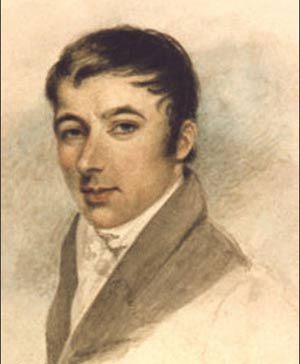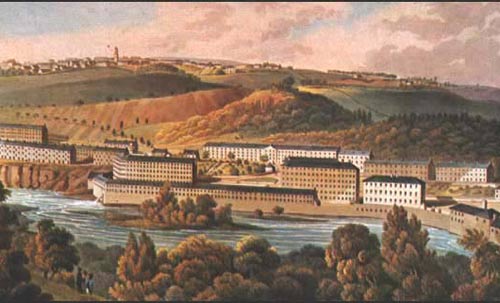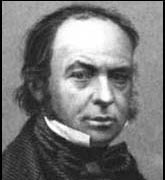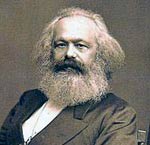
Early life Robert Owen
Robert Owen was born in Newtown, mid-Wales on 14th May 1771. His father, also called Robert Owen, was an ironmonger. At the age of 10, he was taken away from school and sent to work as an apprentice at a local drapers in Stamford, Lincolnshire. After three years apprenticeship, he moved briefly to London, before finding work at a large drapery business in Manchester.
In Manchester, Owen became interested in the new business of textile manufacturing which was prospering in Lancashire. Despite being only 19 years of age, he took out a loan of £100 and set up a business manufacturing clothes with engineer John Jones. This experience of running his own textile business gave Owen the opportunity to gain work as a manager of a large spinning factory in Manchester.
Owen cultivated many contacts with other businessmen in the Manchester area. He also became involved in local philosophy groups who discussed the utilitarianism of Jeremy Bentham and other writers of the Enlightenment. In 1799, he married Caroline Dale, the daughter of David Dale, a successful businessman who owned the Chorlton Twist textile company in New Lanark, Scotland. With the help of other Manchester businessmen, Owen arranged to buy the mill complex from his father-in-law for £60,000.
New Lanarkshire

Owen enthusiastically entered into this new venture. He was not just interested in running a successful business. He was also keen to improve the working conditions and life of the workers. At the time, factory conditions were often dire, with people working long hours for little pay. Workers received little, if any, education and had few prospects. Owen was a great believer that man was shaped by his environment and surroundings. Therefore, he felt it his duty as a manager to offer education and respectable surroundings for his extended family.
On taking over the New Lanark business, Owen ordered the building of a school. He also banned corporal punishment. Owen also restricted the employment of children under the age of 10 (children as young as five had been working in the factories). These young children were instead sent to school. Speaking later about his achievements he said:
“I have created children’s homes and a system of education with no punishments. I have improved the conditions of workers in factories. I have revealed the science by which we may bestow on the human race a superior character, produce an abundance of wealth and procure its just and equitable distribution. I have provided the means by which an education may gradually be achieved – an education equal for all.” – Address to the French Nation (March, 1848)
Owen’s philanthropy towards his own workers was rare, and his other business partners feared that the profitability of their investment would be reduced. This conflict between profit maximisation and social concerns was a continual source of tension. To resolve it, Owen borrowed money from a Quaker, Archibald Campbell, to buy out the other businessmen. He later sold shares to investors more sympathetic to his aims.
Despite his investment in education and improved factory conditions, his factory in New Lanark continued to be profitable. Owen also successfully instituted new management practices and found ways to encourage his workers to be more productive. Owen used his profit to publicise his views and opinions on education, working conditions and utopian communities. An example of his philosophy:
“What ideas individuals may attach to the term “Millennium” I know not; but I know that society may be formed so as to exist without crime, without poverty, with health greatly improved, with little, if any misery, and with intelligence and happiness increased a hundredfold; and no obstacle whatsoever intervenes at this moment except ignorance to prevent such a state of society from becoming universal.”
– Extract from Robert Owen’s “Address to the Inhabitants of New Lanark” New Year’s Day, 1816.
His publicity attracted the attention of a wide range of European politicians and thinkers. His factories in New Lanarkshire were visited by several European policy-makers. In the UK, Owen was invited to give testimony to a Parliament select committee on factory working conditions and the Poor Law.
Owen was disappointed with the response from Parliament, feeling that the Factory Act of 1819 was woefully inadequate. He increasingly began to feel that the solution was the creation of independent ‘utopian communities’ of between 500 to 3,000 people who would work co-operatively for the common good. In these utopian communities, there would be no private property, just a community based on sharing the common good with equal wages.
“There is but one mode by which man can possess in perpetuity all the happiness which his nature is capable of enjoying — that is by the union and co-operation of all for the benefit of each.”
– The Social System: Constitution, Laws, and Regulations of a Community (1826)
Religious views
Owen was also a religious free thinker. He was critical of organised religion, such as the Church of England. He argued that religion tended to create prejudice in men, which was a barrier to peace and harmony.
“I was forced, through seeing the error of their foundation, to abandon all belief in every religion which had been taught to man. But my religious feelings were immediately replaced by the spirit of universal charity — not for a sect, or a party, or for a country or a colour — but for the human race, and with a real and ardent desire to do good.”
– Life of Robert Owen (1857) his autobiography.
This religious criticism divided him from other social reformers, such as William Wilberforce, and made his works less popular. Despite expressing agnostic views, towards the end of his life, he became interested in spiritualism. He had several ‘sittings’ where he became convinced he had mediumistic contact with great spirits, like Benjamin Franklin and Thomas Jefferson who sought “to prepare the world for universal peace and to infuse into all the spirit of charity, forbearance and love.”
Utopian Communities
In 1825, he sought to implement his vision of a utopian community in America, called ‘New Harmony’. He sank much of his capital into this experiment, but unfortunately, it was not a lasting success. His son, who helped manage the community, wryly noted that the utopian community attracted a diverse mixture of charlatans, vagrants and lazy theorists.
A more successful communistic experiment was tried in Ralahine, County Clare, Ireland. For three years, this co-operative society was a great success, until the owner had to sell up after ruining himself from gambling.
Socialism
Owen was an early pioneer of socialism; he was one of the first to use the term ‘socialist’ in publications such as the New Westminster Review (1839). Owen also founded early socialist/co-operative groups such as the Grand National Consolidated Trades Union of 1834 and Association of All Classes of All Nations (1835).
His approach, however, was to rely more on the philanthropy of the capitalist class to set up utopian communities. His socialism was a different brand to the later socialist movements which emphasised relying on the working classes to agitate for better conditions. However, he still raised in the public consciousness the ideal of communities working together and ending inequality based on ownership of property. Friedrich Engels described him as “a man of almost sublime, childlike character,” and also “one of the few born leaders of men”. Engels also said:
“Every social movement and real advance in England on behalf of the workers links with the name of Robert Owen.”
One of his more successful legacies was his contribution to the co-operative movement. After his passing, the co-operative movement finally took off – originally in Rochdale, Lancashire.
In 1848, when a revolution broke out in Paris, he raced to France, despite being aged 77. He saw the revolution as sympathetic to his aim of supporting a more equal society and ending the current state of inequality.
Death
Robert Owen died aged 87 on 17 November 1858 in his hometown of Newtown, Wales. On his deathbed, he was asked by a church minister if he had any regrets. He replied:
“My life was not useless; I gave important truths to the world, and it was only for want of understanding that they were disregarded. I have been ahead of my time.”
Citation: Pettinger, Tejvan. “Biography of Robert Owen”, Oxford, UK. www.biographyonline.net, 05/10/2013. Updated 27th September 2017.
Robert Owen and His Legacy
Robert Owen and His Legacy at Amazon
Related Pages
 Industrial Revolution (1750s to 1900) The great inventors, entrepreneurs and businessmen of the industrial revolution. Also the social activists of the era.
Industrial Revolution (1750s to 1900) The great inventors, entrepreneurs and businessmen of the industrial revolution. Also the social activists of the era.
 Entrepreneurs – Famous entrepreneurs who have set up and created a successful business, including Henry Ford, Steve Jobs and Bill Gates.
Entrepreneurs – Famous entrepreneurs who have set up and created a successful business, including Henry Ford, Steve Jobs and Bill Gates.

External links
- New Lanark – a world heritage site

